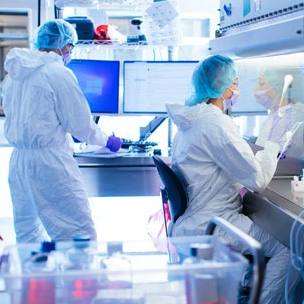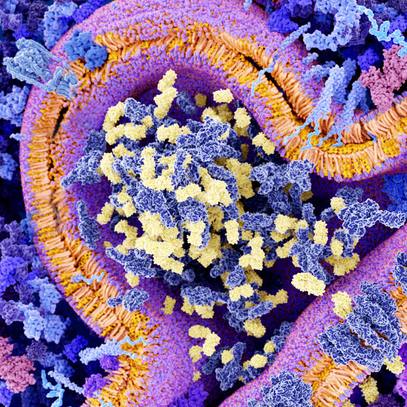-
Biotherapeutics
Addressing diversity barriers to regenerative medicine
With the promise of regenerative medicine comes the risk of widening health care disparities. Sometimes the newest discoveries, such as regenerative interventions, are out of reach for people in diverse ethnic or socioeconomic groups — or they may not understand or trust new options for healing.
Mayo Clinic is trying to overcome those barriers by launching community outreach and a bioethics study aimed at improving access to regenerative medicine among underserved groups.
"Regenerative medicine sometimes could look like a science fiction movie. It is important to learn from the community about how things could be better explained to them or how we can erase any doubts that they have about what we do," says Jorge Mallea, M.D., a pulmonologist at Mayo Clinic in Florida. "Listening to their concerns, and explaining what we know, the things still we don't have solutions for, and what we are trying to accomplish could improve understanding and engagement."
Regenerative medicine is an emerging field of practice that is shifting the focus of health care from fighting disease to rebuilding health, with an emphasis on repairing, replacing or restoring diseased cells and tissues. Mayo Clinic's Center for Regenerative Medicine is at the vanguard of this movement, supporting the concept of regeneration for all. Dr. Mallea chairs the center's Equity, Inclusion and Diversity Advisory Committee.
More diverse clinical trials
To ensure that regenerative therapies go beyond selected or priority groups, Mayo Clinic is expanding the recruitment for clinical trials to include more diversity in race, age and socioeconomic status. For example, a dermatology study in Rochester is exploring how certain regenerative interventions might affect ethnic groups with different skin tones.
"We want to learn more about diverse groups to ensure the therapies we apply would work for people of different genders, races and genetics," says Dr. Mallea. "It's important to have representation from diverse groups. We could learn in our clinical trials that certain groups need different doses or distinct ways of applying the interventions."
In other research, Zubin Master, Ph.D., a bioethicist in Mayo Clinic's Biomedical Ethics Research Program, is leading a bioethics study that seeks to understand possible economic, social and ethnic barriers to platelet-rich plasma — platelets spun from a person's own blood and containing growth factors — as an orthobiologic treatment for knee osteoarthritis. Platelet-rich plasma is a new regenerative procedure that shows healing potential. However, the Food and Drug Administration has not yet approved it. Therefore, patients must pay out of pocket for it.
Mohamed Addani, a Mayo Clinic Graduate School of Biomedical Sciences student within Dr. Master's team, will interview patients across Mayo Clinic who choose platelet-rich plasma as an intervention for knee osteoarthritis and those who opt instead for standard care. The team will compare those responses to a more demographically diverse group of patients who've made similar care choices at Detroit Medical Center. Researchers will examine race, ethnicity, socioeconomic and demographic variables, beliefs, attitudes, and understanding of regenerative medicine.
"This study will provide the first scientifically based data on whether health disparities exist among patients seeking next-generation regenerative interventions such as platelet-rich plasma," says Dr. Master. "The results will give us the unique opportunity to identify factors that are creating barriers to regenerative care and proactively address ways to overcome them."
The project seeks to improve access and make regenerative medicine more equitable among diverse and underserved groups.
Showcasing 'the cool stuff'
Attracting a more diverse pool of regenerative medicine scientists and practitioners is another strategy to boost inclusivity. Mayo Clinic is taking regenerative medicine on the road to high schools and colleges near its destination locations in Arizona, Florida and Minnesota, showcasing what Dr. Mallea describes as "the cool stuff" in research and development. The hope is that it might inspire students, particularly those from underrepresented and disadvantaged communities, to consider a career in regenerative medicine.
"We are sharing examples of our research, such as bioprinting of organs and developing new medicines from living organisms like cells to fight different diseases and cancers," says Dr. Mallea. "We hope to plant a seed in their minds that regenerative medicine holds promise not only as a future therapy, but also a future career."
In addition, Mayo is using the Community Scientist Program to open its doors to scientists from the community who want to learn more. This program pairs community scientists with regenerative medicine researchers. Mayo hopes these strategies will improve the interaction and understanding needed to ensure access to new regenerative therapies as they are introduced in the practice.
###










